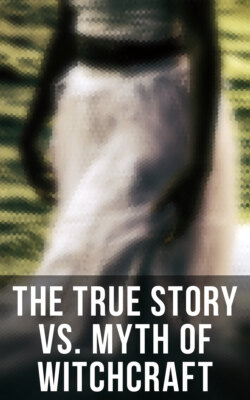Читать книгу The True Story vs. Myth of Witchcraft - William Godwin - Страница 158
На сайте Литреса книга снята с продажи.
Albertus Magnus.
ОглавлениеAlbertus Magnus, a Dominican, was one of the most famous of these. He was born according to some accounts in the year 1193, and according to others in 1205. It is reported of him, that he was naturally very dull, and so incapable of instruction, that he was on the point of quitting the cloister from despair of learning what his vocation required, when the blessed virgin appeared to him in a vision, and enquired of him in which he desired to excel, philosophy or divinity. He chose philosophy; and the virgin assured him that he should become incomparable in that, but, as a punishment for not having chosen divinity, he should sink, before he died, into his former stupidity. It is added that, after this apparition, he had an infinite deal of wit, and advanced in science with so rapid a progress as utterly to astonish the masters. He afterwards became bishop of Ratisbon.
It is related of Albertus, that he made an entire man of brass, putting together its limbs under various constellations, and occupying no less than thirty years in its formation. This man would answer all sorts of questions, and was even employed by its maker as a domestic. But what is more extraordinary, this machine is said to have become at length so garrulous, that Thomas Aquinas, being a pupil of Albertus, and finding himself perpetually disturbed in his abstrusest speculations by its uncontrolable loquacity, in a rage caught up a hammer, and beat it to pieces. According to other accounts the man of Albertus Magnus was composed, not of metal, but of flesh and bones like other men; but this being afterwards judged to be impossible, and the virtue of images, rings, and planetary sigils being in great vogue, it was conceived that this figure was formed of brass, and indebted for its virtue to certain conjunctions and aspects of the planets. 168
A further extraordinary story is told of Albertus Magnus, well calculated to exemplify the ideas of magic with which these ages abounded. William, earl of Holland, and king of the Romans, was expected at a certain time to pass through Cologne. Albertus had set his heart upon obtaining from this prince the cession of a certain tract of land upon which to erect a convent. The better to succeed in his application he conceived the following scheme. He invited the prince on his journey to partake of a magnificent entertainment. To the surprise of every body, when the prince arrived, he found the preparations for the banquet spread in the open air. It was in the depth of winter, when the earth was bound up in frost, and the whole face of things was covered with snow. The attendants of the court were mortified, and began to express their discontent in loud murmurs. No sooner however was the king with Albertus and his courtiers seated at table, than the snow instantly disappeared, the temperature of summer shewed itself, and the sun burst forth with a dazzling splendour. The ground became covered with the richest verdure; the trees were clothed at once with foliage, flowers and fruits: and a vintage of the richest grapes, accompanied with a ravishing odour, invited the spectators to partake. A thousand birds sang on every branch. A train of pages shewed themselves, fresh and graceful in person and attire, and were ready diligently to supply the wants of all, while every one was struck with astonishment as to who they were and from whence they came. The guests were obliged to throw off their upper garments the better to cool themselves. The whole assembly was delighted with their entertainment, and Albertus easily gained his suit of the king. Presently after, the banquet disappeared; all was wintry and solitary as before; the snow lay thick upon the ground; and the guests in all haste snatched up the garments they had laid aside, and hurried into the apartments, that by numerous fires on the blazing hearth they might counteract the dangerous chill which threatened to seize on their limbs. 169
